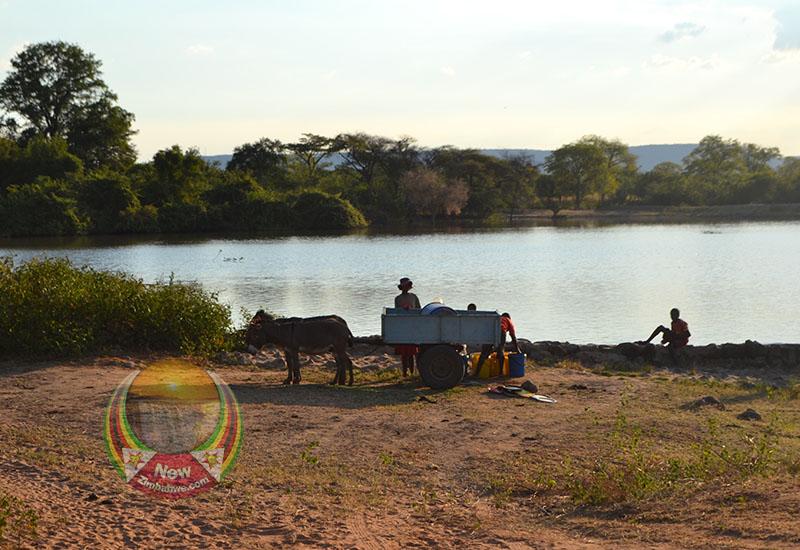Africa-Press – Zimbabwe. By Staff Reporter – A LOT has changed for 54-year-old Jephias Sithole from Rumwanjiva, Mwenezi, Masvingo province since water has become more accessible as a result of the weir dams constructed through the World Food Programme’s (WFP) Food Assistance for Assets(FFA).
In Zimbabwe, drought is the most prevalent climate-related hazard.
Its frequent occurrence has had significant consequences on access, livelihoods, and food security.
In the 10 years, dry spells have increased in frequency, intensity and extended impact due to climate change and have directly impacted farmers like Sithole’s daily lives.
“Before the weir dam was built, I used to travel as far as 15 kilometers every day to fetch water for my livestock, and this was difficult but they are the main source of my income, so I did what I had to do”, says Sithole.
The weir dams have increased access and availability of water and improved the natural environment around water basins.
With improved access to water, Sithole saves both time and energy and he is able to spend more time working in his family garden and participating in other livelihood activities.
In Zimbabwe, the WFP rolls out programmes that improve the food security of communities and enhance resilience to shocks. Not only have the people of Rumwanjiva received FFA support; they have also benefited from Lean Season Complementary Activities under which a livestock dip tank and borehole were drilled, following consultations with the community.
More than 1 500 cattle use the dip tank.
With continuous support from donors, Sithole and the Rumwanjiva community receive support through the WFP’s Zambuko Livelihoods Initiative, which focuses on increased social cohesion, improved agricultural production, and improved access to finance and markets.
The WFP promotes an integrated approach to resilience building and seeks to improve smallholder farmers’ production, income, and food security.
Farmers now have access to village savings and loans associations, market linkages, and training on appropriate seeds and agricultural practices.






